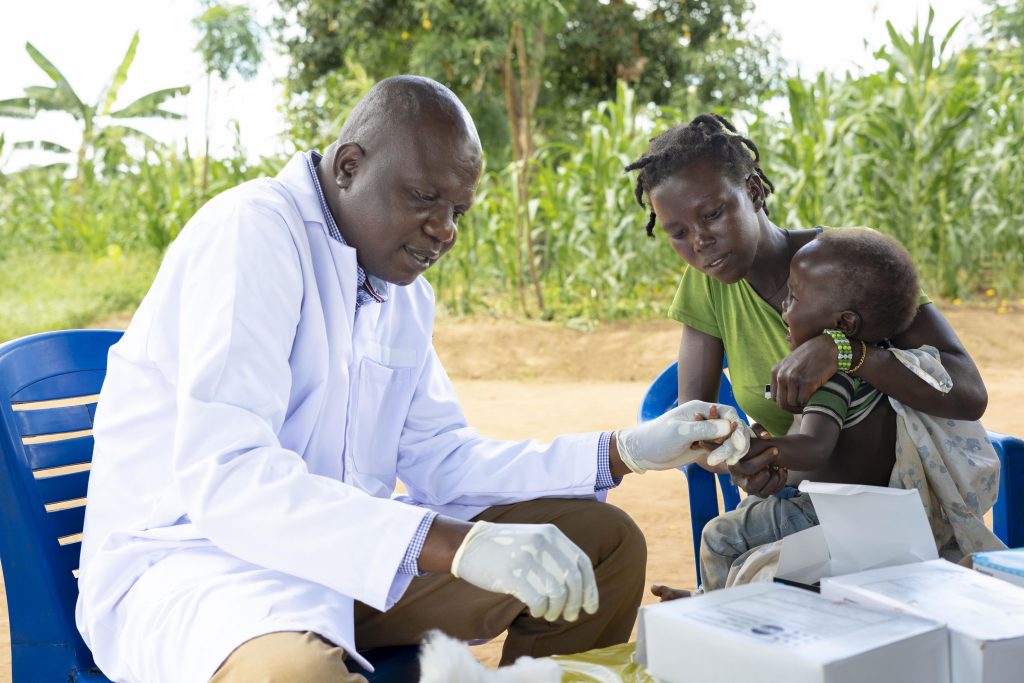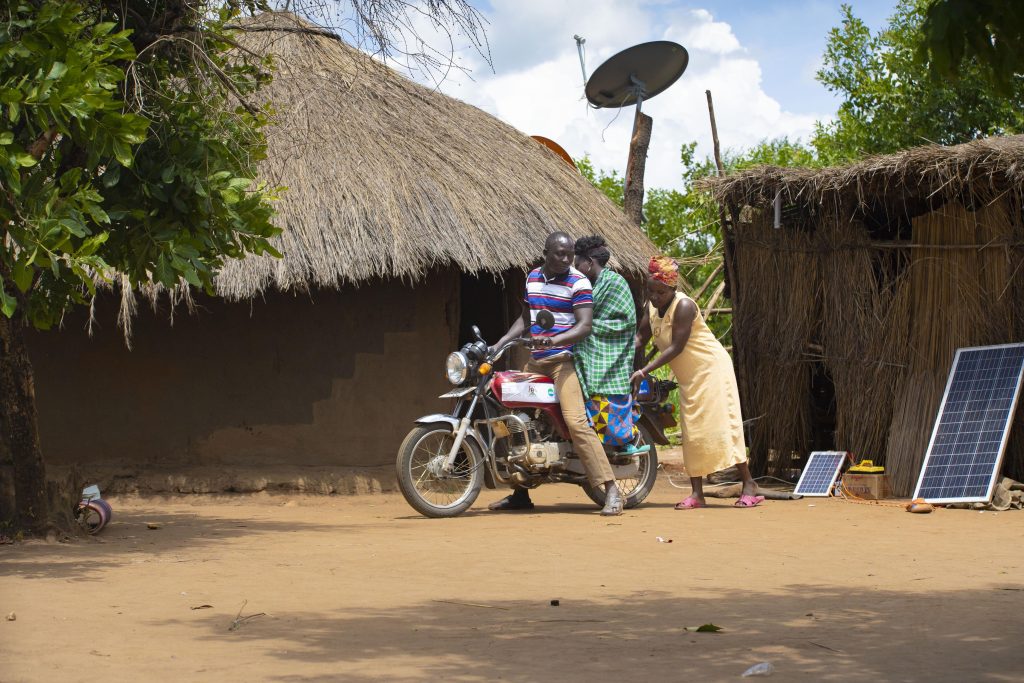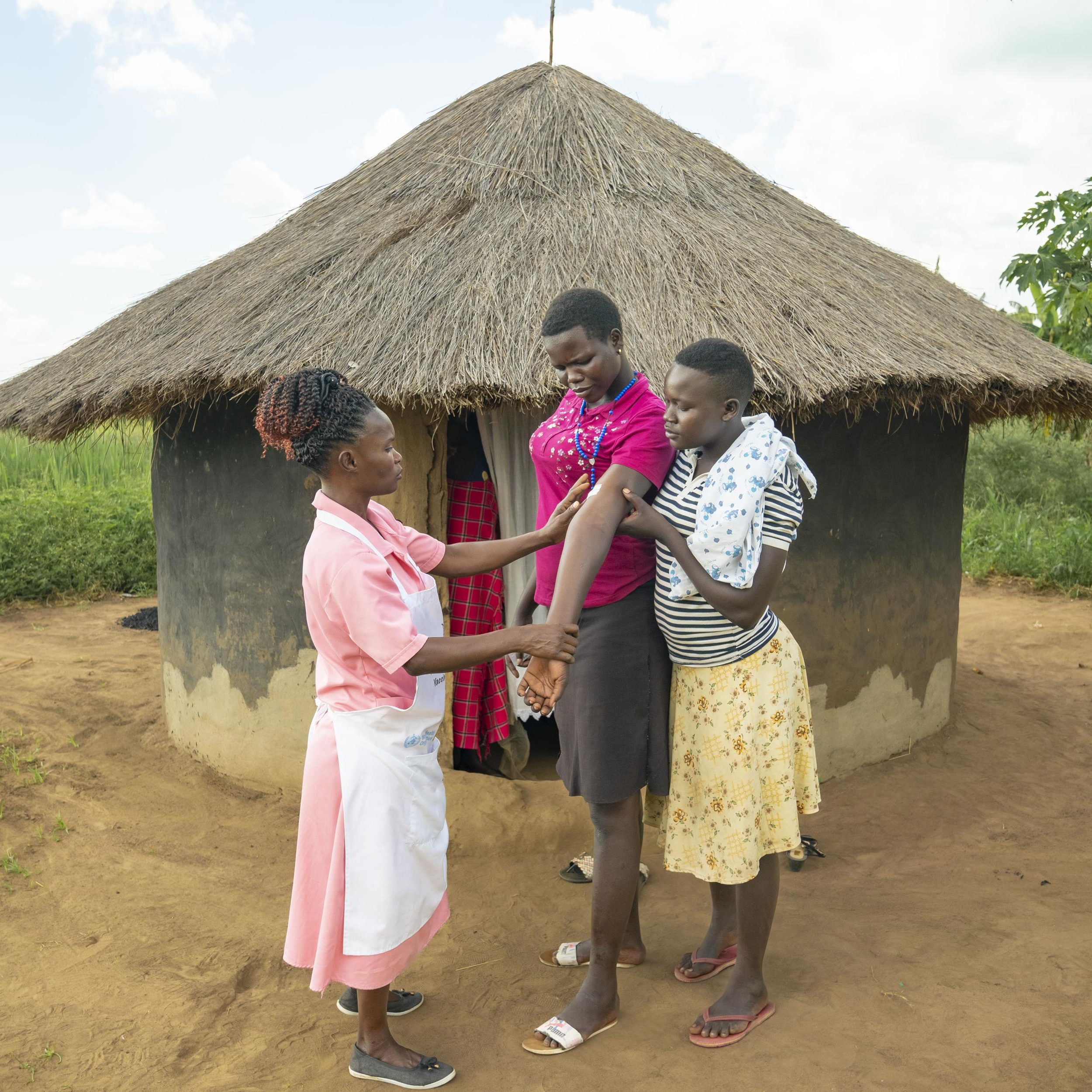Management and improved utilization of data for decision making, improving quality of care, clinical care, community tracking, and reinforcement of the use of key community sustainable innovative approaches requires that capacities of critical personnel are strengthened.
In 41 health facilities and communities across Uganda’s northern districts of Gulu, Kitgum, Lamwo, and Amuru is where some of the undertakings of the Italian Agency for Development Cooperation (AICS)-funded Engagement of Communities to Maximize Impact against HIV, Tuberculosis, and Malaria in Acholi Sub-region (EnCOMi) program is reaching positive results through a collaboration with AVSI.
The program excelled in achieving its objectives: to enhance district health systems for evidence-based planning, enrich the capacity of health workers to proffer services, and bolster community demand, acceptance, and utilization of available HIV/AIDS, tuberculosis and malaria services, so far benefiting 160,900 children under five, 384 HIV-positive pregnant and lactating mothers, 205,600 women of reproductive age, 23,150 people living with HIV, and 2,680 tuberculosis patients with maternal and infant health services.
AVSI has been instrumental in assisting us to improve the quality of our data by facilitating our team to gather and review the record entry and information collection processes, and how to identify errors to ensure accuracy and reliability of data.
Elvis Okello Romanson, Gulu District Biostatistician.
Implemented through a health system strengthening approach in close cooperation with the University of Pavia in Italy, and in Uganda with the Ministry of Health, Regional Referral Hospitals, District Health Teams, front-line health workers at health facilities and communities, including local leaders, the 24-month (September 2021–August 2023) Euro 825,937.60 program on the verge of concluding implementation additionally generated critical successes such as training of 71 District Health Teams in the use and application of scorecard and bottleneck analysis.

Administration of HIV, tuberculosis, and malaria cases is essential for adherence to regimen and prevention of new infections – to address this critical area, the program provided mentorship to 540 health workers; and steered 300 integrated outreaches in hard-to-reach communities. 1,100 village health teams were supported to conduct quarterly review meetings and to provide testing and treatment for malaria, cough and diarrhea within the communities.
The boda-bodas for mother and child health
One of the priorities of the program was to link mothers to Quality Maternal and Child Health services and 330 pregnant women benefited through the program’s linkage services.
From the time AVSI's boda-boda program began, we have seen significant reduction in the number of infant deaths. In fact, we have not encountered any deaths of mothers. This is a testament to the effectiveness of the program which provides timely and affordable transportation to pregnant women and mothers with newborns. Women have access to essential healthcare services and this is saving lives."
Poline Akello, Midwife at Pogo Health Center III in the District of Amuru.

Another popular and cost effective means of referral of mothers and babies to health facilities that the program adopted was the use of the community ambulance, commonly known as the boda-boda referral system where 1,810 transfers were made between home and health facility or a lower level health facility and a hospital for mothers and their babies to access critical healthcare. The boda-boda are registered to offer the service at a nominal fee and are known members of a community prudently appointed by the local leaders of the area.
I rang the AVSI boda-boda rider when I began to feel labor pains and in the shortest time he had come to pick me. We reached the hospital where I had a successful surgery and delivered my twins."
Concy Ange, mother.
The contribution of AICS to Uganda through AVSI Foundation is a milestone of registered successful approaches that involved structures at the lowest community level to save lives of women and infants, and accelerated acceptance of Maternal Child Health services through community involvement and ownership of operational systems for longer lasting solutions.
What the Global fund is and Italy's contribution
The project is funded by the Italian Agency for Development Cooperation out of the share of the Italian commitment to the Global Fund, an international partnership committed to defeat HIV, Tuberculosis and malaria and ensure a healthier, safer, equitable future for all.
Twenty years ago, AIDS, tuberculosis (TB) and malaria seemed unbeatable. In 2002, in an act of extraordinary global solidarity and leadership, the world came together to create the Global Fund to fight what were then the deadliest pandemics confronting humanity.
Over the 20 years that followed, the Global Fund partnership has invested more than US$55.4 billion, saving 50 million lives and reducing the combined death rate from the three diseases by more than half in the countries where we invest.
Italy is one of the main donors of the Global Fund
The first donor's meeting was held in Rome in 2005 under the auspices of the Italian government.
With over $1 billion donated since the beginning of the Global fund activity, Italy is currently the ninth donor country to the Global Fund after the United States, France, United Kingdom, Germany, Japan, the European Commission, Canada and Sweden, with a strong contribution from Italian civil society organizations.

